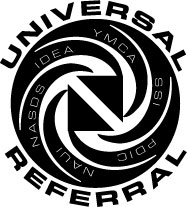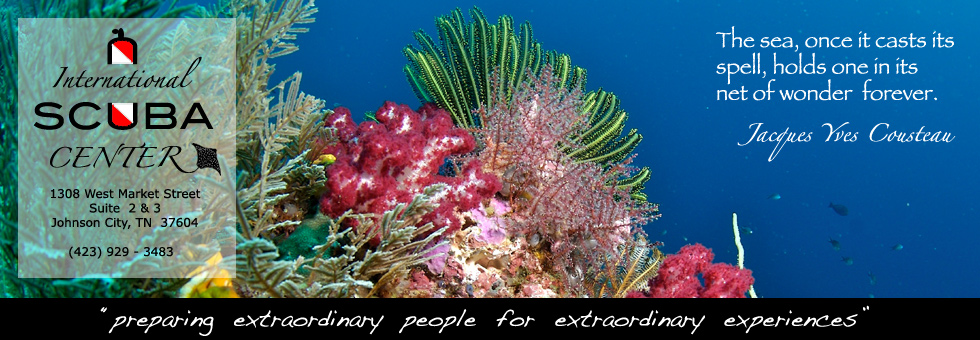Basic Open Water Course
Welcome,
There are few adventures left in this world as fascinating and as much fun as Scuba Diving. It brings out the finest qualities in people and results in the most enduring of friendships. The use of good judgment in both the planning and the carrying out of your dives will reward you with many years of safe and exciting underwater adventures.
Why IDEA Certification Scuba Course ? The International Diving Educators Association (IDEA) was originally established in 1952. Recognized world wide, IDEA is the oldest and currently the fourth largest certification agency worldwide. As one of the most prestigious certification agencies in the world, IDEA is recognized for its excellent academic programs and instruction, by developing the most comprehensive advanced educational programs in the industry. IDEA is represented in over 30 foreign countries and all the continental United States. IDEA does not endorse the “Self Taught DVD Based” instructional method of teaching. Instead, IDEA promotes classroom instruction with a highly qualified instructor who has successfully completed a demanding IDEA Instructor Training Course (ITC).
Prerequisites:
- Minimum age 15 or up for Open Water Scuba Certification.
- Young adults between 12 and 14 will receive a Jr. Open Water Scuba Certification.
- Kids 10 and 11 will receive a Scuba Bear Certification (Must be accompanied at all times by an Instructor when diving)
- All clients must sign Medical, Liability and Risk Awareness forms.
- Clients must attend all classroom and confined water sessions.
- Two days required for Basic Openwater Training certification.
Course Includes:
- All text books (crewpack)
- Repetitive Dive Tables
- Log book
- Certification fees
- Classroom material
- Pool fees
- BCD, regulators, gauges, wet suit, weight belt, weights, tank and air
- Techniques and skills critiqued with video feedback
- Six months complimentary subscription to Dive Training Magazine
- DAN Student Insurance
- No hidden charges
......................................................................................................................
Part One: CLASSROOM AND POOL TRAINING
6 Classroom Sessions & 6 Pool Sessions
Introduction to Scuba Class: (the first night)
- Open to everyone 10 or older
- Medical evaluation form (“yes” on any question on the medical statement requires a Doctor’s authorization)
- Waiver and liability release
- Collection of Course fees
Knowledge Development (classroom):
- Equipment
- Underwater Pressure
- Underwater Physics
- Underwater Physiology
- Bubble Trouble
- Decompression Theory
- Diving Environment
Pool Work (the fun part) :
Your instructor will demonstrate all water skills and then give you adequate time to practice and master the skills in the pool - the same skills you will use in open water.
Client Furnishes: Mask, Snorkel, Boots and Fins
See Instructor For: Equipment recommendations, cost, selection and fit
........................................................................................................................................................................
Part Two: OPEN WATER TRAINING DIVES
Two days of water training sessions are required to meet the minimum requirements for Open Water Scuba Certification. During the open water dives you will apply the same skill you mastered in the pool and develop some new skills and abilities that can’t practically be taught in confined water. Before participating in part two (Open Water Training Dives) clients must complete all classroom and confined water skills in full.
Options for Open Water Training Dives
Option 1. Local (South Holston Lake):
South Holston Lake was named for the river that bears the name of Steven Holston, an early settler of the Tennessee Valley. Situated on the western edge of the Appalachian Mountains, the clear waters of the 7,580-acre lake extend from Northeastern Tennessee into Virginia. About 60 percent of the shoreline is bordered by the Cherokee National Forest, which further enhances the recreation appeal. Visibility, depending on the time of year, varies from four feet to forty feet. ISC furnishes BCD, regulators, gauges, weights & weight belt, tank, air and wetsuit.
Option 2. Dive Trip - Domestic or International:
Philadelphia Quarry, Loch Low-Minn, Florida Springs/Keys, Bonaire, Grand Cayman, Roatan, Cozumel, Belize, etc.
Option 3. Referral Program:
If you are going on vacation or your own dive trip and prefer to do your open water training dives at your destination, you can use our Universal Referral Program (URP) to show you’re ready and complete your training at their location using their instructor (fast and easy).
The URP was developed in 1998 through the cooperative efforts of IDEA, NASDS, NAUI, PDIC, SSI, and YMCA for the benefit of the scuba diving industry. PADI instructors and facilities can also receive students and be registered as referral instructors and locations under the Universal Referral Program.
